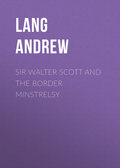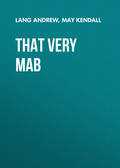
Lang Andrew
The True Story Book
Surely enough before long a hoarse, sullen roar arose, becoming louder and louder, till from the parapet surrounding the enclosure the great avenues that led to it could be seen dark with masses of warriors rolling on in a confused tide towards the fortress, while at the same time the flat roofs of the neighbouring houses were suddenly covered, as if by magic, with swarms of menacing figures, brandishing their weapons – a sight to appal the stoutest heart.
Fighting in Mexico
When notice was given of the approach of the Aztecs, each man was soon at his post, and prepared to give them a warm reception. On they came, rushing forward in dense columns, each with its gay banner, and as they neared the enclosure they set up the hideous yell or shrill whistle used in fight, which rose high above the sound of their rude musical instruments. They followed this by a tempest of stones, darts, and arrows, which fell thick as rain on the besieged, and at the same time those upon the roofs also discharged a blinding volley. The Spaniards waited until the foremost column was within fire, and then, with a general discharge of artillery, swept the ranks of their assailants, mowing them down by hundreds. The Mexicans for a moment stood aghast, but soon rallying swept boldly forward over the prostrate bodies of their comrades: a second and third volley checked them and threw their ranks into disorder, but still they pressed on, letting off clouds of arrows, while those on the house-tops took deliberate aim at the soldiers in the courtyard. Soon some of the Aztecs succeeded in getting close enough to the wall to be sheltered by it from the fire of the Spaniards, and they made gallant efforts to scale the parapet, but only to be shot down, one after another, as soon as their heads appeared above the rampart. Defeated here, they tried to effect a breach by battering the wall with heavy pieces of timber, but it proved too strong for them, and then they shot burning arrows among the temporary buildings in the courtyard. Several of these took fire, and soon a fierce conflagration was raging, which was only to be checked by throwing down part of the wall itself, and thus laying open a formidable breach. This was protected by a battery of heavy guns, and a file of arquebusiers, who kept up an incessant volley through the opening. All day the fight raged with fury, and even when night came, and the Aztecs suspended operations according to their usual custom, the Spaniards found but little repose, being in hourly expectation of an assault. Early the next morning the combatants returned to the charge. Cortés did not yet realise the ferocity and determination of the Mexicans, and thought by a vigorous sortie he would reduce them to order, and, indeed, when the gates were thrown open, and he sallied out, followed by his cavalry, supported by a large body of infantry and Tlascalans, they were taken by surprise and retreated in some confusion behind a barricade which they had thrown up across the street.
But by the time Cortés had ordered up his heavy guns and demolished the barrier they had rallied again, and though, when the fight had raged all day, Cortés was, on the whole, victorious, still he had been so harassed on all sides by the battalions of natives who swarmed in from every side street and lane, by those in canoes upon the canal, and by the showers of huge stones from those upon the house-tops, that his losses had been severe. Earlier in the day he had caused a number of houses to be burned to rid himself of some of his tormentors, but the Aztecs could probably better afford to lose a hundred men than the Spaniards one, and the Mexican ranks showed no signs of thinning. At length, exhausted by toil and hunger, the Spanish commander drew off his men, and retreated into his quarters, pursued to the last by showers of darts and arrows; and when the Spaniards re-entered their fortress, the Indians once more encamped round it; and though through the night they were inactive, still they frequently broke the stillness with menacing cries and insults.
'The gods have delivered you into our hands at last!' they said. 'Huitzilopochtli has long cried for his victims. The stone of sacrifice is ready – the knives are sharpened. The wild beasts in the palace are roaring for their feast.' These taunts, which sounded dismally in the ears of the besieged, were mingled with piteous lamentations for Montezuma, whom they entreated the Spaniards to deliver up to them. Cortés was suffering much from a severe wound and from his many anxieties, and he determined to induce Montezuma to exert his authority to allay the tumult. In order to give greater effect to his appearance he put on his imperial robes. His mantle of blue and white was held by a rich clasp of the precious 'chalchivitl,' which with emeralds of uncommon size, set in gold, also ornamented other portions of his dress. His feet were shod with golden sandals, and upon his head he wore the Mexican diadem. Surrounded by a guard of Spaniards and preceded by a golden wand, the symbol of sovereignty, the Indian monarch ascended the central turret of the palace. His presence was instantly recognised by the people, and a magical change came over the scene: the clang of the instruments and the fierce cries of the assailants ceased, and many in the hushed throng knelt or prostrated themselves, while all eyes were turned with eager expectation upon the monarch whom they had been taught to regard with slavish awe. Montezuma saw his advantage, and in the presence of his awestruck people felt once more a king. With his former calm authority and confidence he addressed them:
'Why do I see my people here in arms against the palace of my fathers? Is it that you think your sovereign a prisoner, and wish to release him? If so you have done well; but you are mistaken. I am no prisoner. The strangers are my guests. I remain with them only for choice, and can leave them when I will. Have you come to drive them from the city? That is unnecessary; they will depart of their own accord if you will open a way for them. Return to your homes then. Lay down your arms. Show your obedience to me, whose right it is. The white men shall go back to their land, and all shall be well again within the walls of Mexico.'
As Montezuma declared himself the friend of the detested strangers a murmur of contempt ran through the multitude. Their rage and desire for vengeance made them forget their ancient reverence, and turned them against their unfortunate monarch.
'Base Aztec,' they cried, 'woman, coward! The white men have made you a woman, fit only to weave and spin.'
A chief of high rank brandished a javelin at Montezuma, as these taunts were uttered, and in an instant the place where he stood was assailed with a cloud of stones and arrows. The Spaniards, who had been thrown off their guard by the respect shown by the people on their lord's appearance, now hastily interposed their shields, but it was too late: Montezuma was wounded by three of the missiles, one of which, a stone, struck him on the head with such violence that he fell senseless to the ground. The Mexicans, shocked at their own sacrilegious act, set up a dismal cry, and dispersed panic-stricken until not one of all the host remained in the great square before the palace. Meanwhile, the unhappy king was borne to his own apartments, and as soon as he recovered from his insensibility the full misery of his situation broke upon him. He had tasted the last bitterness of degradation. He had been reviled and rejected by his people. Even the meanest of the rabble had raised their hands against him, and he had nothing left to live for. In vain did Cortés and his officers endeavour to soothe the anguish of his spirit and encourage him to hope for better things. Montezuma answered not a word. His wounds, though dangerous, need not have proved fatal had he not refused all remedies, tearing off the bandages as often as they were applied, and maintaining all the while a determined silence. He sat motionless, with downcast eyes, brooding over his humiliation; but from this painful scene the Spanish general was soon called away by the new dangers which threatened the garrison.
Opposite to the Spanish quarters stood the great teocalli of Huitzilopochtli, rising to a height of nearly a hundred and fifty feet, and thus completely commanding the palace occupied by the Spaniards. A body of five or six hundred Mexicans, many of them nobles and warriors of the highest rank, now took possession of the teocalli, whence they discharged such a tempest of arrows upon the garrison that it was impossible for any soldier to show himself for an instant outside his defences without great danger, while the Mexicans themselves were completely sheltered. It was absolutely necessary that they should be dislodged, and Cortés entrusted the task to his chamberlain Escobar, giving him a hundred men for the purpose. But after making three desperate attempts, in which he was repulsed with considerable loss, this officer returned unsuccessful, and Cortés determined to lead the storming party himself, though he was suffering much from a wound which disabled his left hand. He made the arm serviceable, however, by strapping his shield to it, and thus prepared sallied forth at the head of three hundred chosen cavaliers and several thousand of the Indian allies. In the courtyard of the temple a body of Mexicans was drawn up to oppose him, and he charged them briskly, but the horses could not keep their footing on the slippery pavement, and many of them fell. Hastily dismounting the Spaniards sent the animals back to their quarters, and then, renewing the assault, had little difficulty in dispersing the Indians and securing a passage to the teocalli. And now began a great and terrible struggle. You will remember that the huge pyramid-shaped teocalli was built in five divisions, growing smaller and smaller, till at the top you came out upon a square platform, crowned only by the two sanctuaries in which stood the images of the Aztec gods. You will also remember that the only ascent was by flights of stone steps on the outside, one above another, and that it was necessary between each flight to pass by a kind of terrace, right round the building, so that a distance of nearly a mile had to be traversed before reaching the top. Cortés sprang up the lower stairway, followed by Alvarado, Sandoval, Ordaz, and the other gallant cavaliers, leaving a strong detachment to hold the enemy in check at the foot of the temple. On every terrace as well as on the topmost platform the Aztec warriors were drawn up to dispute his passage. From their elevated position they showered down heavy stones, beams, and burning rafters, which thundering along the stairway overturned the ascending Spaniards and carried desolation through their ranks. The more fortunate, eluding or springing over these obstacles, succeeded in gaining the first terrace, where they fell upon their enemies and compelled them to give way, and then, aided by a brisk fire from the musketeers below, they pressed on, forcing their opponents to retreat higher and higher, until at last they were glad to take shelter on the broad summit of the teocalli. Cortés and his companions were close behind them, and the two parties soon found themselves face to face upon this strange battle-field, engaged in mortal combat in the presence of the whole city, while even the troops in the courtyard ceased hostilities, as if by mutual consent, and watched with breathless interest the issue of the struggle.
The Spaniards and Mexicans closed with the desperate fury of men who have no hope but in victory. Quarter was neither asked nor given, and to fly was impossible. The edge of the platform was unprotected by parapet or battlement, and many of the combatants, as they struggled together, were seen to roll over the edge of the precipice, locked in a death-grip. Cortés himself but narrowly escaped this frightful fate. Two powerful warriors had seized upon him, and were dragging him violently towards the side of the pyramid, when, by sheer strength, he tore himself from their grasp and hurled one of them over the brink with his own arm.
The battle raged unceasingly for three hours. The number of the Mexicans was double that of the Spaniards, but the armour of the latter and their skill as swordsmen outweighed the odds against them. Resistance grew fainter and fainter on the side of the Aztecs. The priests, who had run to and fro among them with streaming hair and wild gestures, encouraging and urging them on, were all slain or captured. One by one the warriors fell dead upon the blood-drenched pavement, or were hurled from the dizzy height, until at last the wild struggle ceased, and the Spaniards stood alone upon the field of battle. Their victory had cost them dear, for forty-five of their comrades lay dead, and nearly all the remainder were more or less seriously wounded; but there was no time for regrets. The victorious cavaliers rushed to the sanctuaries to find that the cross and the image of the Virgin had disappeared from the one they had appropriated, and that in the other, before the grim figure of Huitzilopochtli, lay the usual offering of human hearts, possibly those of their own countrymen! With shouts of triumph the Spaniards tore the hideous idol from its niche, and in the sight of the horror-stricken Aztecs hurled it down the steps of the teocalli, and, after having set fire to the sanctuaries, descended joyfully into the courtyard.
Passing through the ranks of the Mexicans, who were too much dismayed by all they had witnessed to offer any resistance, they reached their own quarters in safety, and that very night they followed up the blow they had struck by sallying forth into the sleeping town and burning three hundred houses. Cortés now hoped that the natives were sufficiently subdued to be willing to come to terms with him. He therefore invited them to a parley, and addressed the principal chiefs, who had assembled in the great square, from the turret before occupied by Montezuma. As usual, Marina interpreted for him, and the Indians gazed curiously at their countrywoman, whose influence with the Spanish general was well known. Cortés told them that they must now know how little they had to hope from their opposition to the Spaniards. They had seen their gods trampled in the dust, their altars destroyed, their dwellings burned, and their warriors falling on all sides. 'All this,' he continued, 'you have brought upon yourselves by your rebellion. Yet, for the sake of the affection felt for you by the sovereign you have treated so unworthily, I would willingly stay my hand if you will lay down your arms and return once more to your obedience. But if you do not,' he concluded, 'I will make your city a heap of ruins, and leave not a soul alive to mourn over it.'
But the Spanish commander did not yet understand the character of the Aztecs if he thought to intimidate them by menaces. It was true, they replied, that he had destroyed their temples, broken in pieces their gods, and massacred their countrymen. Many more doubtless were yet to fall under their terrible swords. But they were content so long as for every thousand Mexicans they could shed the blood of a single white man. 'Look out,' they said, 'upon our streets and terraces. See them still thronged with warriors as far as your eyes can reach. Our numbers are scarcely diminished by our losses. Yours, on the contrary, are lessening hour by hour. Your provisions and water are failing. You are perishing from hunger and sickness; you must soon fall into our hands. The bridges are broken down, and you cannot escape! There will be too few of you left to glut the vengeance of our gods.' With this they discharged a volley of arrows, which compelled the Spaniards to beat a speedy retreat from the turret. The fierce answer of the Aztecs filled the besieged with dismay.
The general himself, pressed by enemies without and factions within, was, as usual, only roused to more energetic action by a situation which would have paralysed any ordinary mind. He calmly surveyed his position before deciding what course he would pursue. To retreat was hazardous, and it mortified him cruelly to abandon the city in which he had so long been master and the rich treasure which he had secured, with which he had hoped to propitiate the King of Spain. To fly now was to acknowledge himself further than ever from the conquest and to give great opportunity to his enemy, the Governor of Cuba, to triumph over him. On the other hand, with his men daily diminishing in strength and numbers, with the stock of provisions so nearly exhausted that one small daily ration of bread was all the soldiers had, with the breaches in his fortifications widening every day and his ammunition nearly gone, it was manifestly impossible to hold the place much longer against the enemy. Having reached this conclusion, the next difficulty was to decide how and when it would be well to evacuate the city. He tried to fight his way out, but he failed, and when night fell the Mexicans dispersed as usual, and the Spaniards, tired, famished, and weak from their wounds, slowly re-entered the citadel, only to receive tidings of a fresh misfortune. Montezuma was dead. 'The tidings of his death,' says the old Spanish chronicler, 'were received with real grief by every cavalier and soldier in the army who had had access to his person, for we all loved him as a father, and no wonder, seeing how good he was.'
Montezuma's death was a real misfortune for the Spaniards. While he lived there was still a possibility of his influence with the natives being of use to them. Now that hope was gone. The Spanish commander showed all respect for his memory. His body, arrayed in its royal robes, was laid upon a bier, and borne on the shoulders of those nobles who had remained with him to the last to his subjects in the city, whose wailings over it were distinctly heard by the Spaniards; but where he was buried, and with what honours, they never knew.
The Spanish general now called a council to decide as speedily as possible the all-important question of the retreat. It was his intention to fall back upon Tlascala, and once there to arrange according to circumstances his future operations. There was some difference of opinion as to the hour of departure; but owing to the predictions of a soldier named Botello, who pretended to be able to read the stars, and who announced that to leave the city at night would be for the good of his comrades, though he himself would meet his death through it, it was decided that the fortress should be abandoned that very night. After events proved that Botello's prophecy was unfortunately only true as far as he himself was concerned.
The general's first care was to provide for the safe conveyance of the treasure. The soldiers had most of them converted their share into gold chains or collars which could be easily carried about their persons. But the royal fifth, with that of Cortés himself and his principal officers, was in bars and wedges of solid gold.
That belonging to the crown was now given in charge to the royal officers, with the strongest horse to carry it, and a special guard for its protection. But much treasure belonging to the crown and to private individuals was necessarily abandoned, and the precious metal lay in shining heaps upon the floors of the palace. 'Take what you will of it,' said Cortés to the soldiers; 'better you should have it than those Mexican hounds. But be careful not to overload yourselves: he travels safest who travels lightest.' His own wary soldiers took heed to his counsel, taking few treasures, and those of the smallest size. But the troops of Narvaez thought that the very mines of Mexico lay open before them, and the riches for which they had risked so much were within their reach at last. Rushing upon the spoil, they loaded themselves with all they could possibly carry or stow away.
Cortés next arranged the order of march. The van consisted of two hundred Spanish foot, commanded by Sandoval, with twenty other cavaliers. The rest of the infantry formed the rear-guard under Alvarado and De Leon, while the general himself took charge of the centre, some of the heavy guns, the baggage, the treasure, and the prisoners, among whom were a son and two daughters of Montezuma, Cacama, and several nobles. The Tlascalans were pretty equally divided among the three divisions. The general had previously superintended the construction of a portable bridge to be laid across the open canals. This was entrusted to the care of an officer named Magarino and forty men, all pledged to defend the passage to the last extremity. Well would it have been if three such bridges had been made, but the labour would have been great and the time was short. At midnight all was ready, and after a solemn mass had been celebrated by Father Olmedo, the Spaniards for the last time sallied forth from the ancient fortress, the scene of so much suffering and of such great courage.






